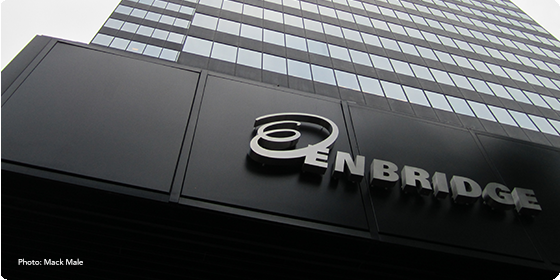
This summer, construction of the Line 3 pipeline generated a lot of controversy, with several protests demanding a stop to construction. Enbridge, a large energy infrastructure company, is planning to construct a 340-mile pipeline called Line 3. The pipeline construction is planned to replace an outdated, existing pipeline that stretches from Alberta, Canada to the Wisconsin coast on Lake Michigan. Yesterday, the Minnesota Supreme Court upheld a decision by the Minnesota Public Utilities Commission granting a certificate of need and environmental review approval for Line 3. However, there are two additional pending lawsuits against Line 3. One of these cases is challenging a Clean Water Act Section 404 permit. The other case is before the White Earth Band of Ojibwe’s Tribal Court and challenges a permit allowing Enbridge to divert water for Line 3.
The Line 3 construction stems from a 2017 consent decree that ordered Enbridge to pay for over $100 million in pipeline upgrades to prevent spills and resolved claims for the 2010 oil spills in Michigan and Illinois. Enbridge and supporters of Line 3 argue the construction is needed in order to improve Line 3’s safety and better protect the environment from spills and contamination. Opponents to Line 3 argue that more environmental analysis is needed along the construction route and argue the pipeline has the potential to pollute important water sources. Due to Line 3’s proximity to the Great Lakes and many river crossings, pollution from Line 3 has the potential to impact almost half of the Nation’s freshwater and affect millions of people.
One pending lawsuit is before the U.S. District Court for the District of Columbia. In the case, Tribes and other environmental organizations requested the court vacate Line 3’s Clean Water Act Section 404 permit. Section 404 of the Clean Water Act authorizes the U.S. Army Corps of Engineers (Army Corps) to permit the discharge of fill material into navigable waters of the United States. Before the Army Corps issues a Section 404 permit, it must consider whether there are any practicable alternatives that would have less adverse impacts to aquatic ecosystems. Among other environmental arguments, the Tribes and organizations in this case argue the Section 404 permit should be vacated because the Army Corps failed to adequately consider the harms associated with oil spills from Line 3. Currently, all parties have filed their motions before the court and are waiting to see whether the court will hold oral arguments for the case.
The other pending lawsuit is before the White Earth Nation Tribal Court. The case is unusual, because the lead Plaintiff is “manoomin,” a type of wild rice, making this one of the few rights of nature cases to be filed in the United States. In 2018, the White Earth Band of Ojibwe passed a law that gives manoomin the right to exist and flourish. The complaint alleges that the permit allowing Enbridge to divert water for Line 3 violates the rights of manoomin and other tribal treaty rights. In response, the Minnesota Department of Natural Resources asked a U.S. District Court to issue an injunction to stop the case in the White Earth Band of Ojibwe’s Tribal Court. The State argues the Tribal Court does not have jurisdiction to hear the case because there is no jurisdiction over actions of non-tribal members that occur off reservation. While it will likely take several months, a ruling on the case could enable the White Earth Band of Ojibwe to bring the complaint against Line 3 to federal court.
While the courts grapple with the legality of Line 3, it is hard to predict when construction of the pipeline will be completed. Some stakeholders even predict that the Biden Administration will weigh in on Line 3. Like many other controversial pipeline projects that have recently made headlines, the final resolution of the construction and operation of Line 3 may depend on how these pending court cases are resolved.












